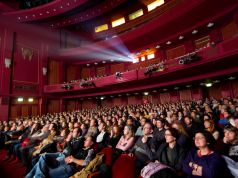Jewgenj Chaldej. The Important Instant.
9 May-28 July 2008. The Martin-Gropius Bau hosts the first large retrospective of the Russian photographer Jewgenj Chaldej (1917-1997) displaying over 200 mainly black and white pictures, and a variety of contemporary documents, part of the Ernst Volland and Heinz Krimmer collection. This exhibition ranges from Chaldej early works from the 1930s to his late oeuvres of the end of the 1980s. Chaldej exhaustively documented the vicissitudes of world war two and some of his portraits became icons of the history of photo-reportage. One of the most famous is the image of a Communist soldier hoisting the Russian flag on the German parliament. Less well known but still very suggestive are his shots taken during the retreat of the Russian army and the Potsdam conference. This retrospective shows also touching reportages, which tell of the desperation of war.
Chaldej was from a Jewish family in Ucraina in 1917. He was passionate about photography in his childhood and made his first camera at the age of 12. He never really had an artistic education, but worked for regional newspapers for many years. In 1936 he became a correspondent of the news agency Tass. From 1941onwards he documented world war two through the eyes of the Red Army as a simple soldier and later as a lieutenant.
General Info
View on Map
Jewgenj Chaldej. The Important Instant.
Martin-Gropius Bau. Niederkirchnerstrasse 7, Berlin, tel. 0049-30-254860. Wed-Mon 10.00-20.00.

























